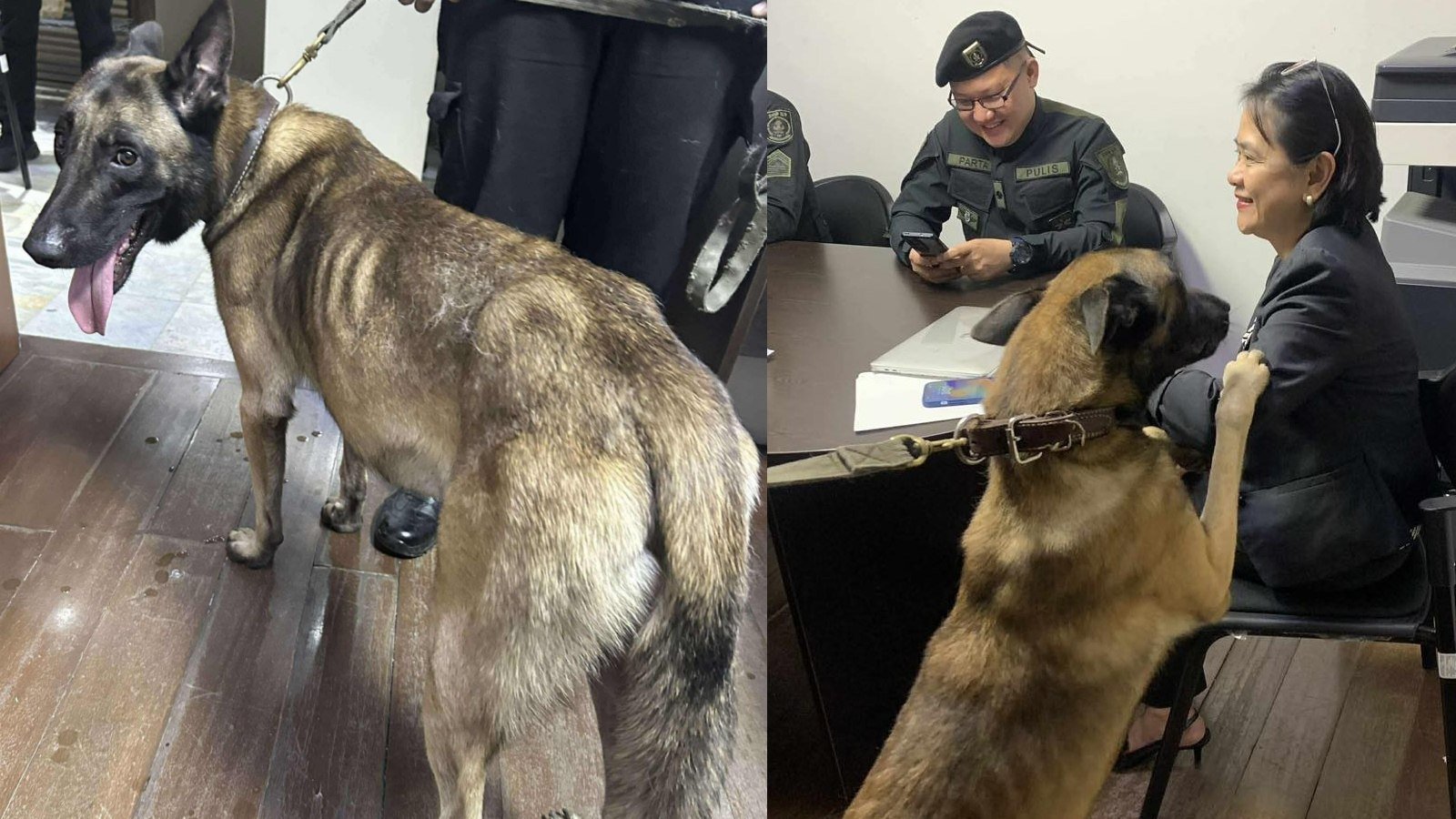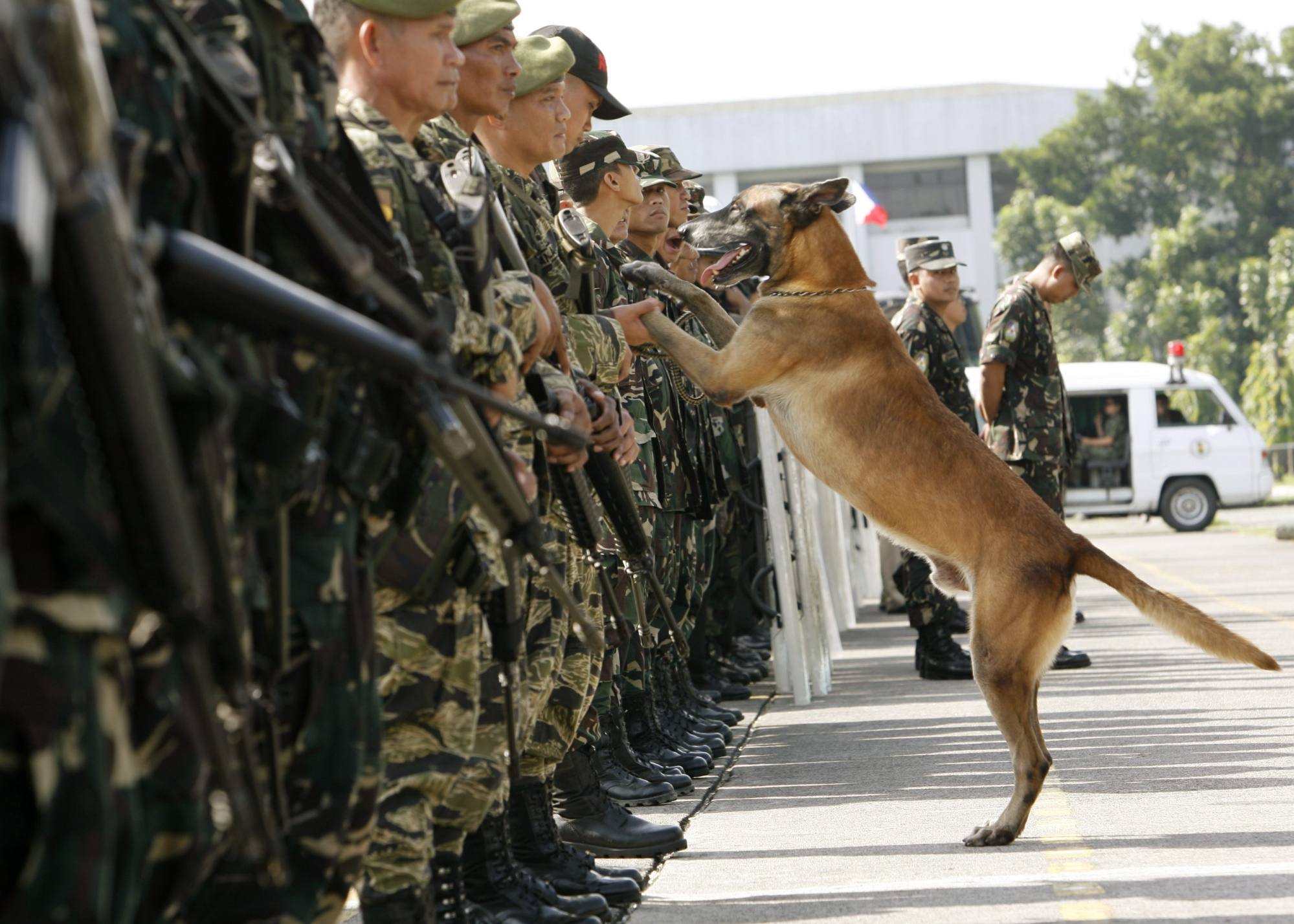Police defend K9 care after photo of gaunt bomb dog draws outrage in Philippines
Officers insist Kobe was fit for duty but animal rights groups demand transparency and reform

A bomb-sniffing dog deployed to the site of an explosion in the Philippine capital has sparked national uproar after a viral photo showed its rib cage and spine protruding sharply, prompting animal rights groups to demand an investigation and better care for the country’s service animals.
The Belgian Malinois, named Kobe, was pictured beside his handler at the blast site in Tondo, Manila, where four people were injured in what police said was the accidental detonation of an air conditioner compressor on Sunday.
But what drew widespread public attention was not the explosion – from which all four victims were expected to recover – but Kobe’s condition. In images posted to the Philippine Star’s official social media account, the dog’s visible bones and gaunt frame prompted concern over possible malnourishment.
“This kind of condition in a working dog should be a serious concern for animal welfare and operational readiness,” said animal welfare advocate Dominic Balandra Epe, echoing a chorus of concern across Filipino social media.
Social media user Geraldine Agbisit-Pelobello said Kobe appeared malnourished and in need of urgent care. “I think the K9 unit has a budget but not enough. They must be given enough food, vitamins and check-ups for maintenance. I hope those in-charge will look into the welfare of these K9 dogs,” she wrote.
The Animal Kingdom Foundation (AKF), a local animal rights group, was among those demanding answers. “Heroes deserve better,” it wrote in a letter addressed to the Philippine National Police’s Regional Explosive and Canine Unit, which oversees the deployment and care of service dogs.
“As one of the country’s official law enforcement units entrusted with the care and deployment of service animals, your group is held to high standards not only of discipline, but expectedly, also of humane treatment and animal welfare,” the group added.
In response to the backlash, the police unit brought Kobe to AKF’s facility on Tuesday, asserting the dog had been in good health before the incident. Officials told AKF that Kobe had recently completed a 15-day refresher training course and was in “physically fit” condition at the time of his deployment.
The unit claimed the dog appeared “a little slim” in the photo due to the recent training period but stressed that all its K9s undergo veterinary checks and routine care. It said Kobe’s vaccinations were current, his lab results were normal, and he had recently been transferred from Taguig to Manila before being assigned to a new handler, who is a person with a disability.
Still, AKF said it had requested a formal investigation into the overall welfare of all K9s under government care. It was “mutually agreed” that Kobe would first undergo a two–three-month rehabilitation period before any redeployment.
“We will closely monitor Kobe’s recovery and continue to push for accountability and systemic welfare improvements for all working animals. Every service dog deserves proper care, dignity, and protection,” the foundation said after meeting with police officers.
Jana Sevilla, senior campaigner at People for the Ethical Treatment of Animals (Peta) Asia, told This Week in Asia that Kobe’s emaciated appearance might be the result of an underlying health issue – but stressed that broader reforms were needed to safeguard animals from being put at risk on the job.
“Peta does not support using animals like Kobe for tasks that can be performed by humans. Let’s not involve them, as we can’t ensure their welfare,” she said.
Unhandled type: inline-plus-widget {“type”:”inline-plus-widget”}
Sevilla urged Kobe’s handlers to provide proof that he was in good health before being sent on duty. “If their vet says the dog is healthy, we can’t do anything about it, but we can still observe the dog’s physical condition.”

While support for Kobe flooded social media, some have questioned netizens’ lack of attention given to the injured blast victims.
“It’s disappointing that people are more concerned about the dog while disregarding what happened to those wounded in the explosion,” Kristie Roda, a pet owner from Davao City, told This Week in Asia.
Under the Philippines’ Animal Welfare Act, service animals are entitled to proper nutrition, veterinary care and humane treatment. Violators face a prison sentence of up to two years, fines of up to 100,000 Philippine pesos (US$1,740), or both.
In March, Senator Grace Poe filed a bill seeking to strengthen the law by raising penalties to up to three years in jail and increasing fines to 250,000 pesos. The proposal also calls for the creation of an animal welfare bureau under the Department of Agriculture.